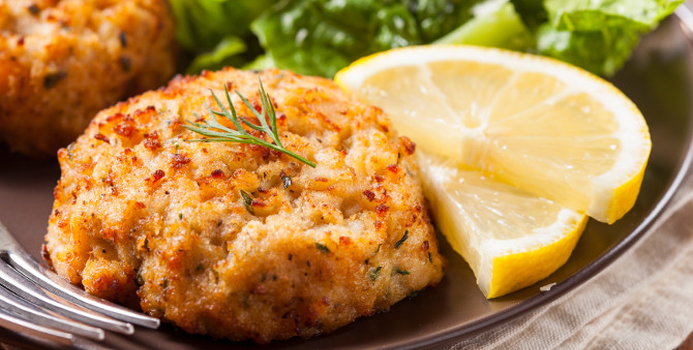Crab meat is a popular and versatile type of seafood. It is also very healthy and a good addition to a balanced diet, as it contains many nutrients coupled with a low fat content.
What is Crab?
Crabs are crustaceans, most usually found in the ocean, that are eaten in many countries around the world. They are used in many different dishes, including bisque, curry and crab cakes, as well as cooked whole, steamed, boiled, baked or fried. Some species, such as soft shelled crabs, are eaten whole (generally after molting). Crab is considered a delicacy in many countries and is often substituted with cheaper imitation crab meat, which may contain a small amount of real crab meat, but is mostly made from artificially flavored fish.
What are the Health Benefits of Crab?
Crab is an excellent addition to a healthy eating plan. It is low in calories with only around 85-90 per 100g (depending on crab type). It does contain some fat, but it is generally unsaturated fat which is considered heart healthy. Crab is also a natural source of omega-3 fatty acids, which can help to improve memory, decrease the chances of having a heart attack, decrease risk of cancer, and possibly help to improve depression and anxiety.
Crab is a low risk seafood for mercury. Many fish, particularly at the higher end of the food chain, contain dangerous amounts of mercury and are not recommended as frequently eaten foods. Crab contains many of the benefits of other seafood, but without the risk of mercury poisoning.
Crab is also a good source of vitamins A, C and the B vitamins including B12, and minerals like zinc and copper. It is a source of selenium, which may be a means of preventing cancer. Crab also has some chromium, which is considered a useful mineral if you have insulin resistance, as it may improve blood sugar metabolism.
Cautions About Crab
If you have an allergy to crab meat you should be careful not to eat it or dishes that may contain crab. If you are allergic to crab, you may also be allergic to other types of shellfish, including lobster and prawns. The symptoms of a crab allergy can be as minor as a skin rash or as dangerous as anaphylaxis, which can lead to death if not treated promptly. Crab also contains moderately large amounts of purines, which are necessary for the healthy functioning of the body, but in some individuals can cause gout.
Crab may also easily cause food poisoning if it is not treated and prepared correctly. Crab must be fresh, without a strong odor and should be kept cold or frozen if it is not eaten immediately.
Crab is an excellent addition to most diets, being low in fat and calories, but high in protien and nutrients. Crab can be prepared in many different ways which makes it easy to include in regular meals.



